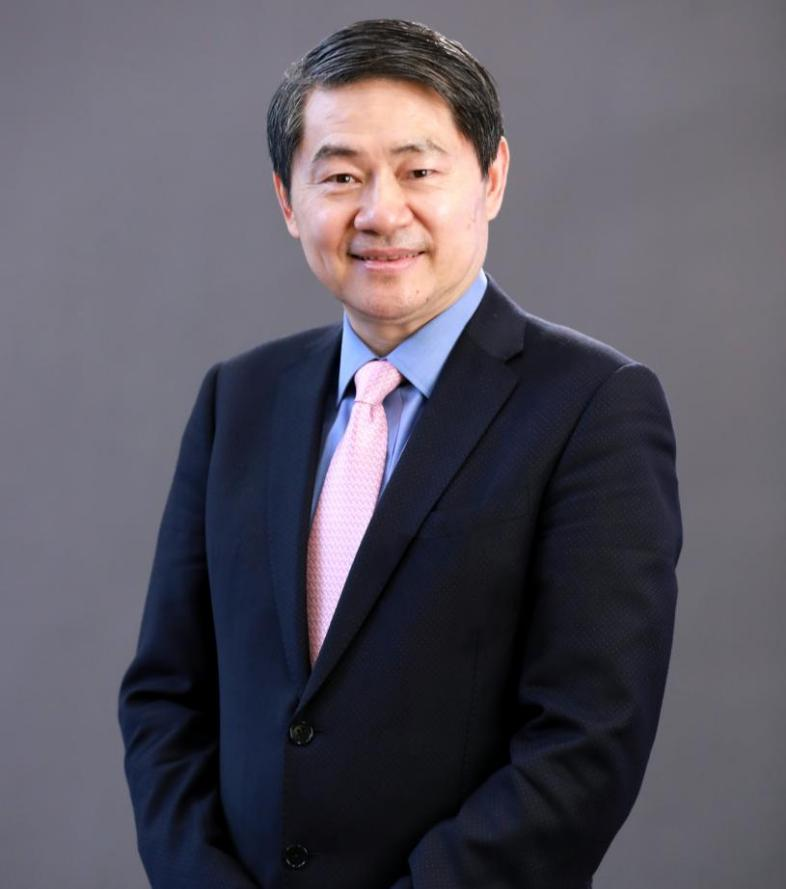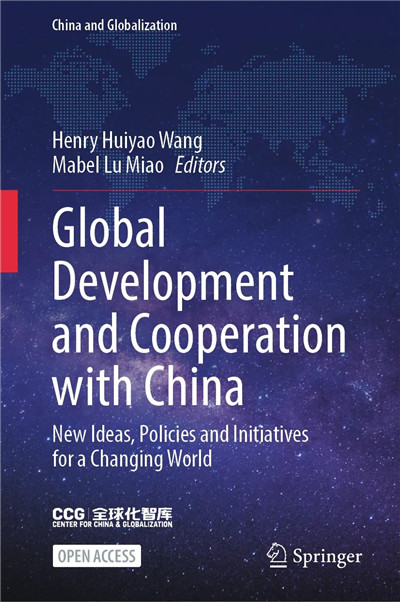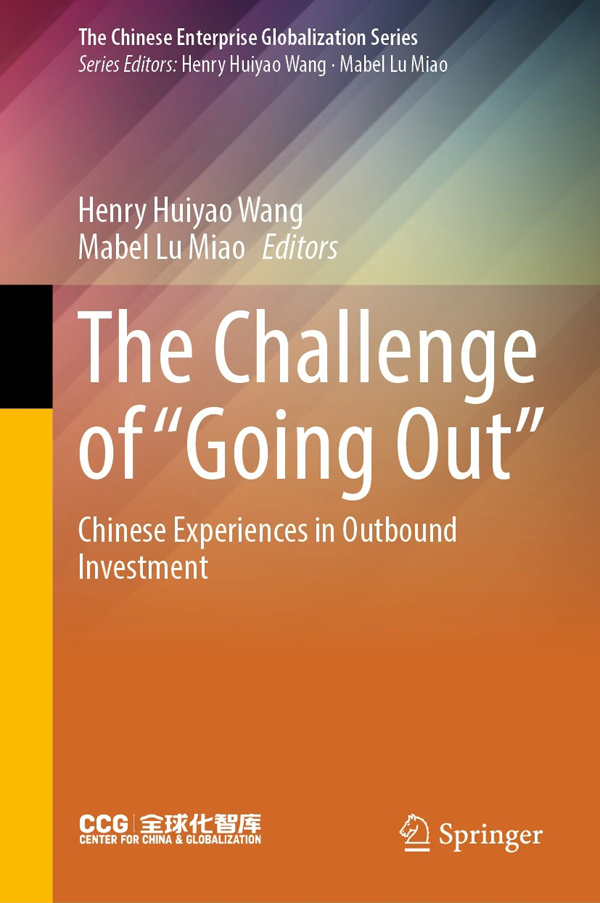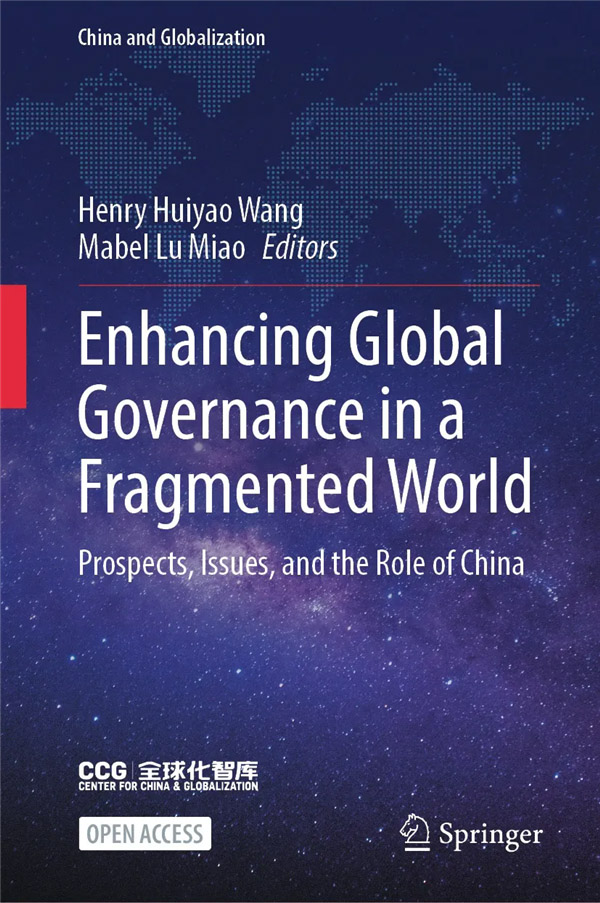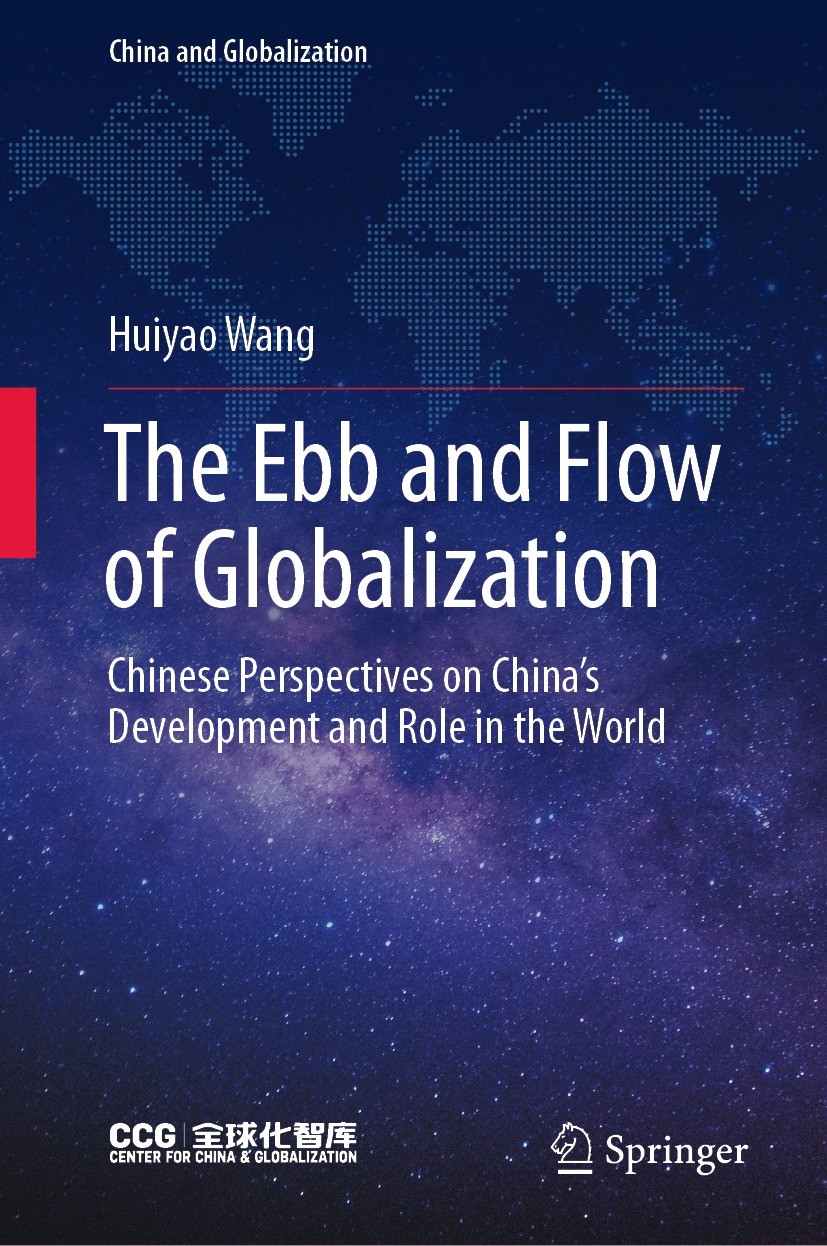
The world has changed. How will globalization progress in the future? What will be China’s role in the process?
Dr. Henry Huiyao Wang’s latest work The Ebb and Flow of Globalization: Chinese Perspectives on China’s Development and Role in the World is trying to find the answers to these questions. In August 2022, the book, which is the last volume of the “China and Globalization” series, was published by Springer Nature.
This book focuses on globalization and China’s evolving role in the world, offering unique perspectives on a number of developments during a tumultuous period that began with Donald Trump’s election and ended with the outbreak of the Covid-19 pandemic. This period saw the global landscape reshaped by China’s continued rise, intensifying great power competition, and a public health crisis that has changed how we live.
The essays center on three interconnected themes – China’s remarkable development under its policy of Reform and Opening-up, China’s deepening integration into the global economy and rise in an increasingly multipolar world, as well as the quest to revitalize global governance and multilateralism to address the pressing global challenges of the 21st century.
We are on the cusp of entering a new phase of globalization in the post-pandemic age, which no doubt will contain many more ups, downs, and surprises. We hope that the perspectives and ideas in this book can make some small contribution in helping readers trying to deepen their understanding of China’s story of development and its integration into the global economy, while also offering some useful suggestions for how we can ensure that the next phase of globalization is more sustainable and inclusive and how it can play a positive role in promoting peace and prosperity in the post-pandemic era.
The Ebb and Flow of Globalization
Author: Huiyao Wang
Published in August, 2022
ISBN: 978-981-16-9253-6
Publisher: Springer Nature Publishing Group
Link to Springer-Nature:
https://link.springer.com/book/10.1007/978-981-16-9253-6
Dr. Wang Huiyao
Dr. Huiyao Wang is Founder and President of Center for China and Globalization (CCG), a think tank ranked among top 100 think tanks in the world. He is also Dean of the Institute of Development Studies of Southwestern University of Finance and Economics of China, Vice Chairman of China Association for International Cooperation, and Director of Chinese People’s Institute of Foreign Affairs. He is currently a Steering Committee Member of the Paris Peace Forum and an Advisory Board Member of the Duke Kunshan University. He has also served as an expert forWorld Bank, IOM and ILO. He pursued his Ph.D. studies at University of Western Ontario and University of Manchester. He was Senior Fellow at Harvard Kennedy School and Visiting Fellow of Brookings Institute. His books in English include: Globalizing China (2012); China Goes Global (2016); Handbook on China and Globalization (2019); Globalization of Chinese Enterprises (2020); Consensus or Conflict? China and Globalization in the 21st Century (2021); Transition and Opportunity: Strategies from Business Leaders on Making the Most of China’s Future (2022); and China and the World in a Changing Context: Perspectives from Ambassadors to China (2022).
The “China and Globalization” series, co-edited by Dr. Henry Huiyao Wang, Founder and President of CCG and Dr. Mabel Lu Miao, Secretary-General of CCG, is designed to address the evolution of China’s global orientation, challenges in globalization and global governance facing China and the rest of the world, actions and proposals for the future of sustainable development, prospects of China’s further capital and market liberalization, and China’s globalizing trajectories as experienced by the world.
This book series seeks to create a balanced global perspective by gathering the views of highly influential policy scholars, practitioners, and opinion leaders from China and around the world. Other volumes of the series include The Asian 21st Century, Transition and Opportunity: Strategies from Business Leaders on Making the Most of China’s Future, China and the World in a Changing Context: Perspectives from Ambassadors to China and The Ebb and Flow of Globalization. All the five volumes are currently available on Springer Nature’s website and the first four books are open access.
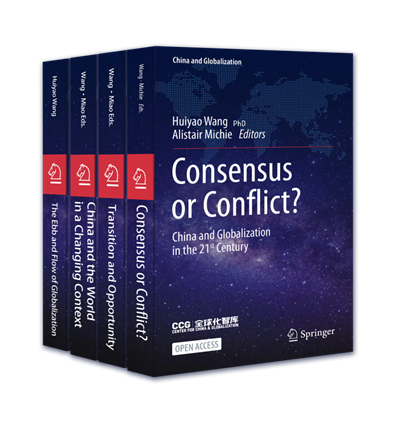
More information about this series at Springer-Nature :
https://link.springer.com/bookseries/16735
Content
Introduction: The Journey of Reform and Opening-Up
PART 1 VECTORS OF CHINA’S GLOBALIZATION
Chapter 1 China’s evolving role in trade and investment
1.Foreign Investment Law will lift opening-up to a new level
2.Rising FDI reflects China’s openness and improved business environment
3.China rises from “Special Economic Zones” to anchor of the global economy
4.CIIE marks a new economic era
5.A trinity of growth drivers for the post-pandemic era
6.How creating a better business environment can boost foreign investment in China
7.From moderate prosperity to modern society
8.’Consultative democracy’ a key part of China’s approach to democracy
9.Effectiveness of Chinese democracy: meritocracy, market democracy and technocracy
Chapter 2 The rise of Chinese multinationals
10.Partnering for success
11.Smarten up and take the lead
Chapter 3 Education, talent and cultural ties
12.Gaokao resumption was the start of a new era
13.Chinese universities need to attract more foreign students, but not by treating them differently
14.How to encourage the flow of Hong Kong’s youth, talent and innovation across the Greater Bay Area
15.China is running the world’s largest tourism deficit. How can it plug the gap?
16.Building a global talent hub for China’s future development
PART 2 CHINA’S RISE IN A MULTIPOLAR WORLD
Chapter 4 Reflections on the changing international order
17.We should focus on real threats, not illusory ones
18.Beyond “Westlessness”: Building a more inclusive order for the new decade
19.How COVID-19 will reinforce trends shaping the international order
Chapter 5 Chinese diplomacy in a changing world
20.Challenging times, creative efforts – Highlights of Chinese diplomacy in 2018
21.Building a shared future for all – Highlights of Chinese diplomacy in 2019
22.Highlights of China’s diplomacy for the post-pandemic world
23.Creating a new Chinese narrative in the global arena
Chapter 6 China-US relations in flux
24.China-US relations at 40: Different dreams, shared future
25.Instead of US-China decoupling, the new decade should bring acceptance of different development models
26.US and China should seek a truce in tech Cold War
27.How Biden could improve US-China relations
28.Sino-US competition need not entail conflict
29.“Climate Superpowers?” Why the Cold War is the wrong analogy for our heating planet
Chapter 7 China’s role in a rising, more integrated Asia
30.Dawn of the Asian Century
31.New chapter in China-Japan relations can drive Asian integration
32.Can China and India overcome their Himalayan differences to benefit Asia?
33.India, China must look to the future
34.From the Syrian civil war to Yemen to energy, China has a larger role to play in the Middle East
35.The two sides of Asia: China’s economic priorities vs the US’ focus on security
Chapter 8 China-EU relations
36.Transcending “us versus them”: China-EU relations in a changing era
37.China and EU can boost cooperation on digital economy
38.China, a land of opportunity for EU firms willing to adapt
39.EU deal is a milestone for China’s globalization that can help build a new world economic order
40.Germany as a mediating power
41.Looking back at and beyond the Merkel era
PART 3 REINVIGORATING MULTILATERALISM
Chapter 9 Global challenges and joint solutions
42.China can be the unifier the world needs to tackle environmental crisis
43.No country is an island in the climate crisis
44.Embracing the green spirit
45.Cooperation is the core of humanity’s immune system
46.COVID-19 is a call for a resilient globalization
Chapter 10 Finding a way forward for free trade
47.From confrontation to cooperation: How to manage the next era of globalization
48.Why China should lead the mission to save the ailing WTO and revive multilateralism
49.The WTO can be an institutional catalyst for post-pandemic recovery
50.How China’s economic heft can reshape the WTO and global trade for the better
51.A transpacific window of opportunity
52.China should seize the day and join the CPTPP to promote a more integrated trading order in Asia
53.China should join the trade deal the US abandoned
54.RCEP’s synergy with China’s economic strategy bodes well for Asia-Pacific
Chapter 11 Evolution of the Belt and Road
55.Spurring global cooperation and development through the Belt and Road
56.AIIB can be a key benchmark for the BRI
57.Redefining the BRI as a global growth project
58.How the China-led AIIB can expand its remit to build a greener, more inclusive post-pandemic world
59.Build back better vs Belt and Road: to improve infrastructure, competition must yield to cooperation
Index
CCG is China’s leading non-governmental think tank, the only Chinese think tank to be granted Special Consultative Status by the United Nations, and the first Chinese non-governmental think tank to become one of the world’s top 100 think tanks in the University of Pennsylvania’s Global Think Tank Index CCG strives to connect China and the world through research and communication in areas such as global governance, trade and economy, migration and globalization.
The CCG Publishing Center works closely with internationally renowned publishing houses including Springer Nature, Edward Edgar, Palgrave Macmillan, World Scientific and Oxford University Press, as well as top domestic publishing houses including the China Translation & Publishing House, the People’s Publishing House, SDX Joint Publishing Company, CITIC Press Group, Social Sciences Academic Press (China), and China Social Sciences Press to publish a wide range of content including research collections, themed compilations and original works. The CCG Publishing Center generally produces over ten monographs, compilations and research reports in both Chinese and English every year.
